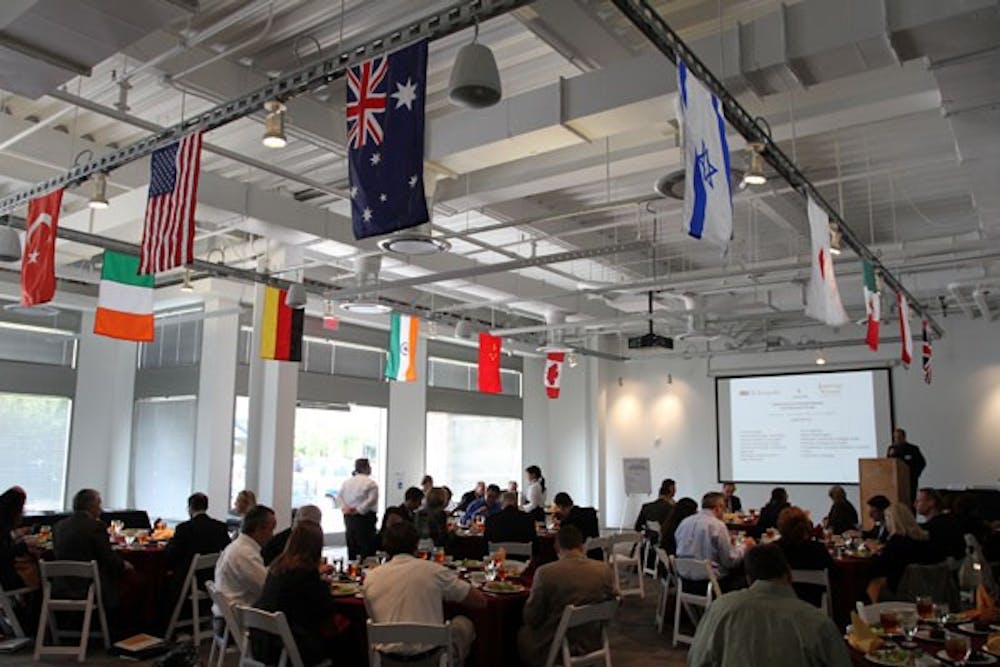ASU SkySong hosted the sixth annual Commercializing Life Sciences Forum on Thursday, exploring the challenges that bioscience companies and research institutions continue to face.
This year’s conference, called “Accelerating a Concept into a Bioscience Company,” addressed some of the ways that bioscience researchers and companies can confront challenges with commercializing inventions.
The panel focused on how to accelerate the commercialization process into market-ready diagnostic or therapeutic products.
Patricia Beckmann, executive director of Oregon Translational Research and Drug Development Institute, gave the keynote speech at the luncheon. She focused on the issue of converting bioscience research into a successful venture outside academia, delving into the fundamentals of entrepreneurship.
“Entrepreneurship allows you to have insight and see opportunity,” she said. “It’s about how far you can push the envelope.”
Having a “never die” attitude allows new entrepreneurs to not only control situations, but to understand them, she said.
Beckmann also spoke about the team aspect of new ventures. The ability to adapt is a much-needed trait, she said.
“Getting to the point where the team has their legs gives reasonable belief of going in the right directions,” she said.
The luncheon was also followed by panel discussions on structure, strategy and fundamentals of a bioscience company.
The session identified core problems that start-up bioscience companies can face in the formative stages of development.
Michael Mobley, associate director of the Impact Accelerator for BioDesign Institute at ASU, said the goal of this program is to increase the success rate, speed and efficiency of the transition to commercialization for ASU technologies.
ASU has a risk-reduction program that is specifically designed to facilitate successful commercialization with promising technology, he said.
Mobley said there are some impediments to successful commercialization, but they are manageable.
“The lack of funding and resources to support early state technology development is an issue,” he said.
The ASU Foundation recruited investors contribute to these challenges by direct investment, he said, meaning start-up companies don’t have to wait for outside investment.
Mobley also advises start-up companies to hire a regulatory consultant to solve many early planning problems.
When discussing management issues, he said the quality of the management team is the most important factor in successful commercialization.
Kevin Engholdt, an MBA student at UA, said this panel is relevant and important for students because this information isn’t on the normal school curriculum.
“You have to come to these things and learn by fire,” he said.
The American culture doesn’t promote risk-taking right now because of the economy, Engholdt said.
“Entrepreneurship is about as risky as you can get,” he said.
Reach the reporter at amoswalt@asu.edu





